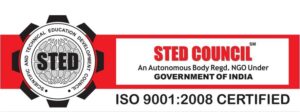Training to become a drone surveyor requires a combination of technical knowledge, practical skills, and experience. This may include learning about drone technology and regulations, surveying principles, data processing techniques, and software tools such as photogrammetry and GIS. In addition, drone surveyors must also develop their flying skills and gain experience in different environments and conditions.
Drone surveyor training may involve online courses, in-person classes, and practical training sessions. Certification and licensing requirements may also vary depending on the country or region where you plan to work. Ultimately, a career as a drone surveyor can be rewarding for those who enjoy working with technology and have a passion for mapping and surveying the world around us.
Here are some more details about drone surveyor training:
Technical Knowledge: Drone surveyors need to have a solid understanding of drone technology, including the different types of drones and sensors available, as well as their capabilities and limitations. They must also be familiar with the regulations governing drone use in their country or region.
Surveying Principles: To accurately map and survey the land and structures below, drone surveyors must understand surveying principles such as triangulation, geodetic control, and topographic mapping. This knowledge can be gained through online courses, college or university programs, or through on-the-job training.
Data Processing: Once the drone has captured data, the surveyor must process it using specialized software such as photogrammetry and GIS. These tools allow the surveyor to create accurate 2D and 3D models of the land and structures below.
Flying Skills: Drone surveyors must have excellent flying skills to operate the drone safely and efficiently. They must also be able to adjust to different weather conditions and flight environments.
Practical Training: Practical training is essential for drone surveyors to gain hands-on experience in the field. This may involve working on real-world projects or participating in simulated training scenarios.
Certification: In many countries, drone pilots are required to obtain certification from the aviation authority. Certification may involve passing a written exam and demonstrating flying skills.
Continuing Education: As drone technology continues to evolve, drone surveyors must stay up-to-date with the latest advancements and techniques. Continuing education courses and professional development opportunities can help drone surveyors stay current in their field.

